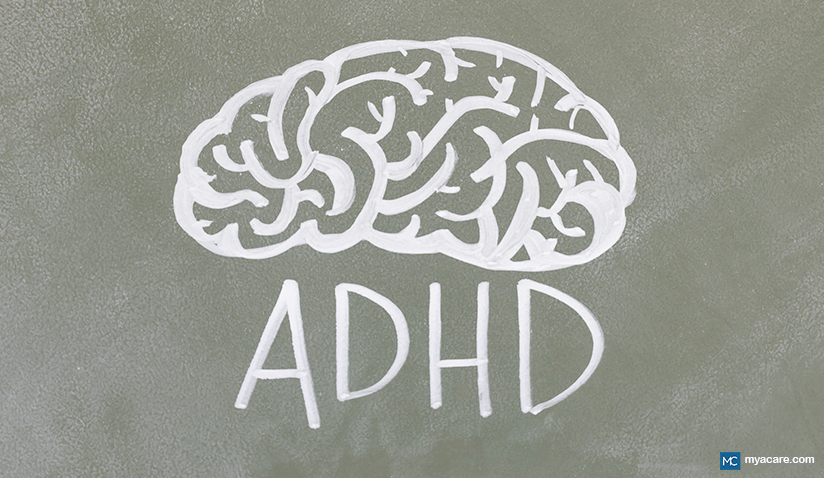Navigating ADHD Treatment Options: Therapy, Medication, and More
Introduction:
Attention Deficit Hyperactivity Disorder (ADHD) is a neurodevelopmental condition that affects individuals of all ages, often impacting their ability to focus, regulate impulses, and manage hyperactivity. While there isn't a definitive cure for ADHD, there are various treatment options available that can significantly improve the quality of life for those affected. In this comprehensive guide, we'll explore different approaches to managing ADHD, including therapy, medication, and natural remedies.
Therapy for ADHD:
Behavioral Therapy:
Behavioral therapy, particularly Cognitive Behavioral Therapy (CBT), has proven effective in managing ADHD symptoms. This therapeutic approach focuses on identifying and changing negative thought patterns and behaviors. Through CBT, individuals with ADHD can develop coping mechanisms, organizational skills, and strategies to improve their attention and impulse control.
Parental Training:
For children diagnosed with ADHD, parental training is crucial. It educates parents on how to create a structured and supportive environment at home. Learning effective parenting strategies can empower parents to better understand and manage their child's ADHD-related challenges.
Psychoeducation:
Psychoeducation involves providing individuals and their families with information about ADHD, its symptoms, and effective management strategies. This knowledge helps in building a supportive network and fostering understanding among family members, educators, and peers.
Medication Options:
Stimulant Medications:
Stimulant medications, such as methylphenidate and amphetamine-based drugs, are commonly prescribed to manage ADHD symptoms. They work by increasing the levels of neurotransmitters like dopamine and norepinephrine, improving focus and attention. While effective, it's important to note that these medications are not a cure for ADHD, but rather a means of symptom management.
Non-Stimulant Medications:
Non-stimulant medications, like atomoxetine and guanfacine, offer an alternative for individuals who may not respond well to stimulants. These medications target different neurotransmitters and can be effective in reducing hyperactivity, impulsivity, and improving attention span.
Individualized Medication Plans:
Finding the right medication and dosage can be a trial-and-error process, as each individual may respond differently. It's crucial for individuals with ADHD to work closely with their healthcare providers to develop an individualized medication plan that addresses their unique needs and minimizes side effects.
Natural Remedies and Lifestyle Changes:
Nutritional Interventions:
While there isn't a specific diet that can cure ADHD, certain nutritional interventions may help manage symptoms. Ensuring a balanced diet rich in omega-3 fatty acids, vitamins, and minerals can contribute to overall brain health. Some individuals also find benefits in reducing artificial additives and food colorings.
Regular Exercise:
Physical activity has been shown to have a positive impact on ADHD symptoms. Regular exercise helps regulate neurotransmitters and promotes better focus and impulse control. Incorporating activities such as yoga, swimming, or team sports into a daily routine can be beneficial for both children and adults with ADHD.
Adequate Sleep:
Sleep plays a crucial role in cognitive function and emotional regulation. Establishing a consistent sleep routine and ensuring adequate rest can significantly improve attention and overall well-being.
Addressing Common Queries:
"Is There a Cure for ADHD?"
As of now, there is no definitive cure for ADHD. However, with a combination of therapy, medication, and lifestyle changes, individuals can effectively manage their symptoms and lead fulfilling lives.
"How I Cured My ADHD" – Managing Symptoms Successfully:
It's essential to shift the narrative from seeking a cure to managing symptoms successfully. Personal stories can inspire hope, emphasizing the importance of finding the right combination of treatments that work for each individual.
"Natural Cures for ADHD" – Integrating Holistic Approaches:
While natural remedies may not offer a cure, integrating holistic approaches such as mindfulness, herbal supplements, and biofeedback can complement traditional treatments, promoting a more comprehensive approach to ADHD management.
Conclusion:
In conclusion, navigating the world of ADHD treatment involves a multifaceted approach. Combining therapeutic interventions, medication, and lifestyle changes tailored to individual needs can significantly enhance the quality of life for those with ADHD. While there may not be a cure in the traditional sense, the emphasis should be on effective management and fostering a supportive environment that empowers individuals to thrive despite their ADHD-related challenges. Remember, seeking guidance from healthcare professionals and building a strong support network are essential steps on the journey to managing ADHD successfully.
FAQ: Navigating ADHD Treatment Options
Q1: What is ADHD, and how does it impact individuals?
A: ADHD, or Attention Deficit Hyperactivity Disorder, is a neurodevelopmental condition affecting people of all ages, impacting their ability to focus, regulate impulses, and manage hyperactivity.
Q2: Is there a cure for ADHD?
A: As of now, there is no definitive cure for ADHD. However, various treatment options are available to manage symptoms effectively.
Q3: What therapy options are available for ADHD?
A: Behavioral therapy, especially Cognitive Behavioral Therapy (CBT), parental training, and psychoeducation are effective therapeutic approaches for managing ADHD symptoms.
Q4: How does Behavioral Therapy work for ADHD?
A: Behavioral therapy, like CBT, focuses on identifying and changing negative thought patterns and behaviors. It helps individuals develop coping mechanisms, organizational skills, and strategies to improve attention and impulse control.
Q5: What is Parental Training, and how does it benefit children with ADHD?
A: Parental training educates parents on creating a structured and supportive home environment. It empowers parents to better understand and manage their child's ADHD-related challenges.
Q6: What role does Psychoeducation play in ADHD treatment?
A: Psychoeducation provides information about ADHD, its symptoms, and effective management strategies. It helps build a supportive network and fosters understanding among family, educators, and peers.

Comments
Post a Comment